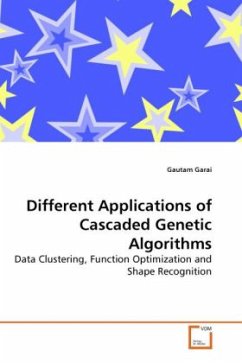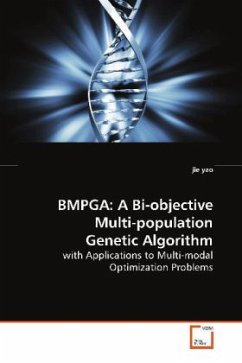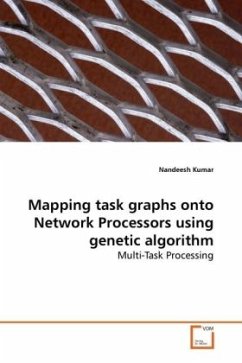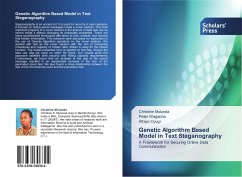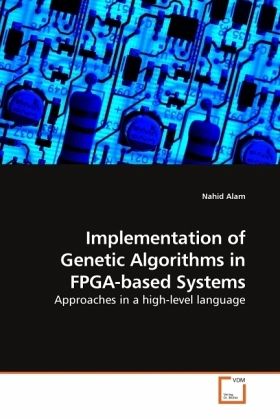
Implementation of Genetic Algorithms in FPGA-based Systems
Approaches in a high-level language
Versandkostenfrei!
Versandfertig in 6-10 Tagen
32,99 €
inkl. MwSt.

PAYBACK Punkte
16 °P sammeln!
Genetic Algorithms (GAs) are used to solve many optimization problems in science and engineering. GA is a heuristics approach which relies largely on random numbers to determine the approximate solution of an optimization problem. We use the Mersenne Twister Algorithm (MTA) to generate a non-overlapping sequence of random numbers. The random numbers are generated from a state vector that consists of 624 elements. Our work on state vector generation and the GA implementation targets the solution of a flow-line scheduling problem where the flow-lines have jobs to process and the goal is to find ...
Genetic Algorithms (GAs) are used to solve many optimization problems in science and engineering. GA is a heuristics approach which relies largely on random numbers to determine the approximate solution of an optimization problem. We use the Mersenne Twister Algorithm (MTA) to generate a non-overlapping sequence of random numbers. The random numbers are generated from a state vector that consists of 624 elements. Our work on state vector generation and the GA implementation targets the solution of a flow-line scheduling problem where the flow-lines have jobs to process and the goal is to find a suitable completion time for all the jobs using a GA. To the best of our knowledge, all the FPGA implementations of GA use HDL. Our approach uses High-Level Language (HLL) to implement a GA in FPGA-based reconfigurable computing system, analyzes the performance and limitations of our design and suggests solution for future improvements.




